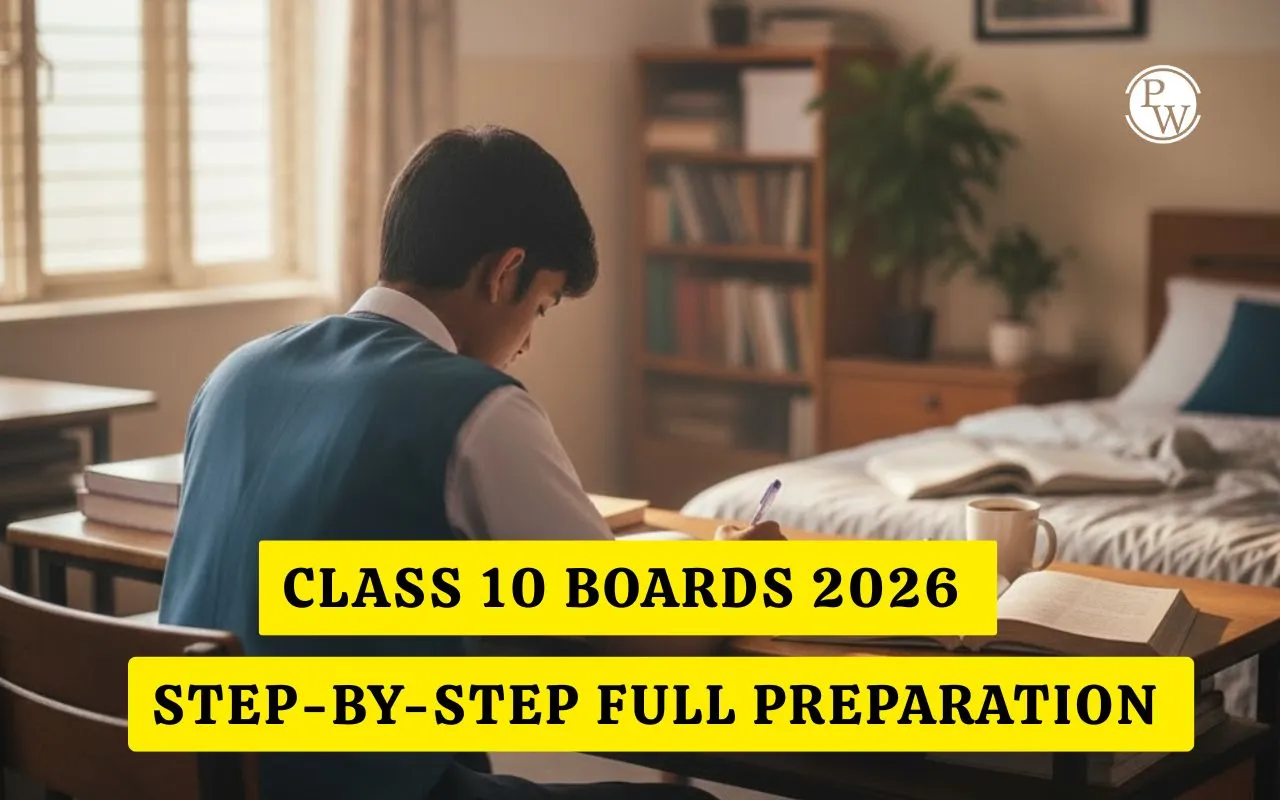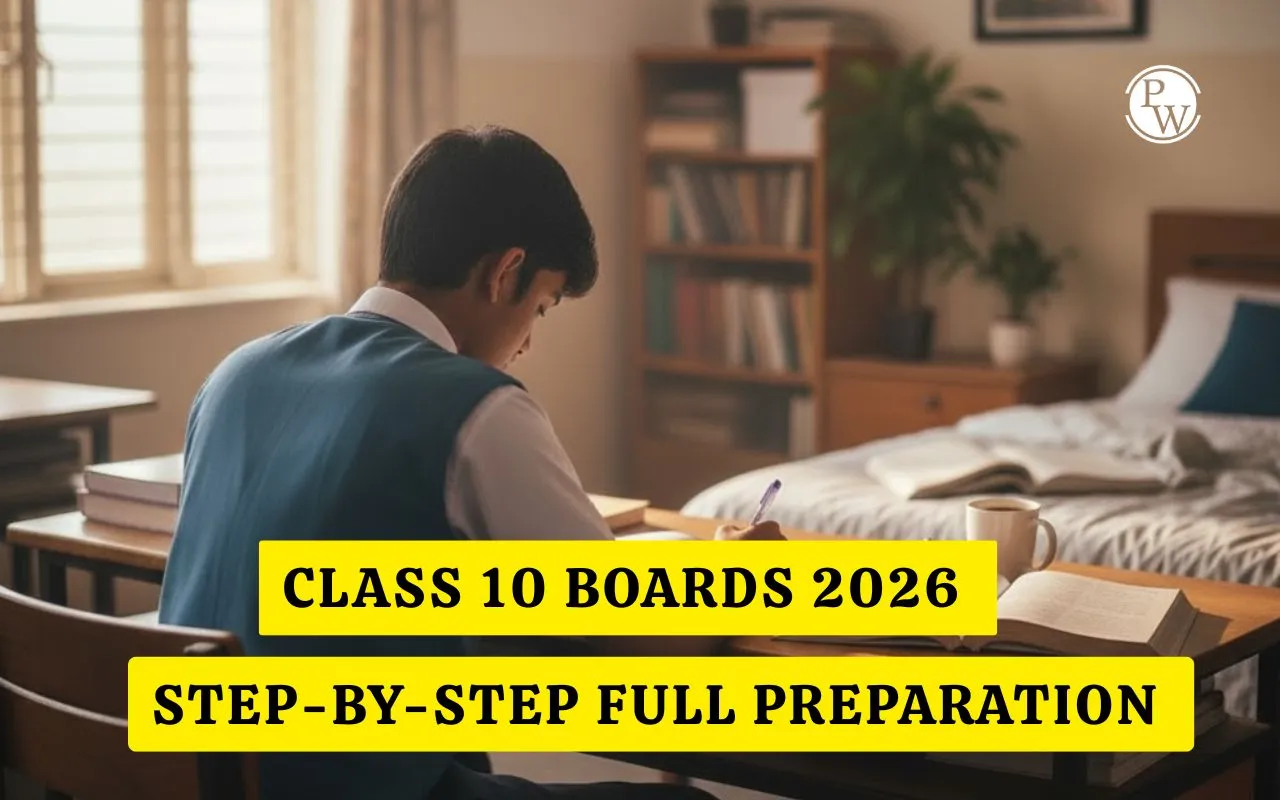

Class 10 Boards 2026 may look stressful, especially when last year’s Maths paper was tough and Physics numericals or Chemistry reactions feel confusing. Many students experience the same doubts, such as how to score more than ninety percent, how to remain consistent, and which books or techniques truly work. The truth is simple. There are no shortcuts, but with the correct method and four months of disciplined study, your performance can improve completely. This roadmap explains every common challenge faced by Class 10 students, identifies the real reasons behind low performance, and offers a practical and achievable subject-wise strategy that beginners, average students, and toppers can all follow to secure high marks.
Step-by-Step Full Preparation Roadmap
Many students panic because of backlogs, difficult midterms, or complete confusion about where to begin. Before looking for solutions, understand why these issues appear. Most students hurry while solving questions, try to memorise instead of understanding, depend too much on quick tips, and get distracted by social media or games. Slowly, this destroys consistency and confidence. The first step is building awareness. Recognise the habits that pull you down and replace them with disciplined study practices.
1. Fix Your Approach First
Maths and Physics feel difficult mainly because students do not read questions carefully. Concept clarity is always more powerful than memorising steps. Use a calm and steady method while solving. Break every question into parts and apply the formula only after understanding the requirement. With this habit, numerical solving becomes easier every day.
2. Stop Overloading With Books
More books do not guarantee more marks. Balanced resources are enough. One favourite chapter should not occupy your entire study time. Give proper time to all subjects and keep the material limited and finishable. Completion is more important than collection.
Subject Wise Guidance
Maths
Always complete NCERT thoroughly because every concept begins there. Solve previous year questions to understand common patterns. Use your class notes for revision. Students preparing for the standard level should add the NCERT Exemplar important questions. RS or RD is optional and should be used only if genuinely required. Maths becomes the easiest subject with regular practice and repeated problem-solving.
Science
Physics
NCERT explanations are important, but numericals need extra practice. Focus on key chapters such as Electricity with questions on resistance, series and parallel circuits, power, and commercial units. Also, revise Light with lens formula, mirror formula, power of lens, and diagrams on myopia and hypermetropia. Use the NCERT along with notes and previous year questions.
Chemistry
NCERT and previous year questions cover everything. Revise chemical reactions every week and write the equations repeatedly so that retention becomes long-term.
Biology
Follow NCERT along with previous year questions and simple mind maps. Use one-shot videos for quick revision. Concentrate on diagrams and important terms because they carry scoring weightage.
How to Avoid Mistakes
Practice mock tests and sample papers regularly. This builds exam stamina and reduces errors. Revise the NCERT four to five times because repetition strengthens memory and improves accuracy. Continuous revision helps you avoid the small mistakes that reduce marks in the final exam
